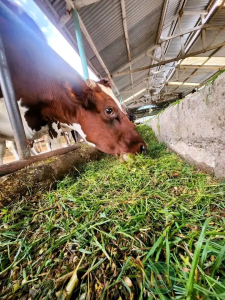Crop production
1. Introduction to crop production
Crop production is the process of growing crops for domestic and commercial purposes. It is a fundamental part of agriculture that has been practiced by humans for thousands of years. Crop production involves a series of steps, including:
* Soil preparation: The soil is tilled and fertilized to create a suitable environment for planting.
* Sowing of seeds: Seeds are planted in the soil at the appropriate depth and spacing.
* Irrigation: Water is provided to the crops as needed.
* Application of manure, pesticides, and fertilizers: These substances are used to improve soil fertility and protect crops from pests and diseases.
* Protecting and harvesting crops: Crops are protected from pests and diseases, and harvested when they are mature.
* Storage and preserving the produced crops: Crops are stored and preserved to prevent spoilage and ensure that they are available for future use.
Crop production is influenced by a variety of factors, including climate, soil fertility, availability of water, and the presence of pests and diseases. It is an essential part of the global food system, providing food for billions of people around the world.
Some of the major food crops produced globally include rice, wheat, maize, potatoes, soybeans, and sugarcane. These crops are used to produce a wide range of food products, including bread, pasta, rice, cereals, cooking oil, and sugar.
Crop production is also important for the production of non-food products, such as cotton, flax, and hemp. These crops are used to produce textiles, paper, and other products.
In addition to its economic importance, crop production also has a significant impact on the environment. The use of fertilizers and pesticides can pollute water and soil, and the clearing of land for agriculture can lead to deforestation and soil erosion. It is important to practice sustainable crop production methods to minimize the negative environmental impacts of agriculture.
Crop production is a complex and challenging process, but it is essential for the survival of humanity. By understanding the factors that influence crop production, we can work to improve agricultural practices and ensure that there is enough food for everyone.
